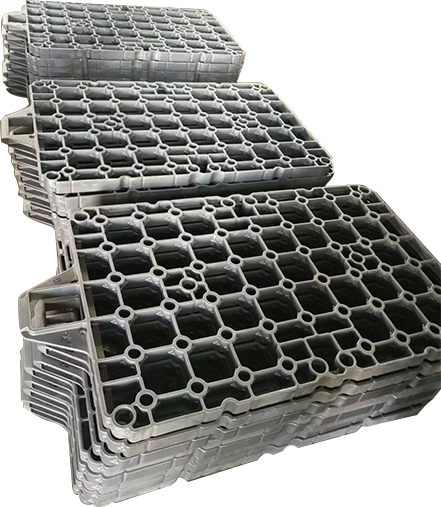dostosowane precyzyjne wytapianie
Dostosowane precyzyjne wlewanie to złożony proces produkcyjny, który łączy tradycyjne techniki wlewania inwestycyjnego z nowoczesnymi możliwościami dostosowywania. Ta zaawansowana metoda umożliwia produkcję skomplikowanych elementów metalowych z wyjątkową dokładnością, wybitnym poziomem gładkości powierzchni i ścisłymi tolerancjami wymiarowymi. Proces rozpoczyna się od stworzenia dokładnego wzoru z wosku na podstawie specyfikacji klienta, a następnie tworzenia obudowy ceramicznej poprzez wiele operacji namacania i pokrywania. Po stopnięciu wosku, rozgrzany metal jest wlewany do formy, co daje jako wynik części o wysokiej detaliczności, które wymagają minimalnej obróbki końcowej. Ta technologia wyróżnia się w produkcji elementów o złożonych geometrycznych kształtach, wewnętrznych kanałach i drobnych szczegółach, które byłyby trudne lub niemożliwe do uzyskania za pomocą konwencjonalnych metod produkcji. Znajduje szerokie zastosowanie w różnych przemyслаch, w tym w lotnictwie, automatyce, urządzeniach medycznych i maszynach przemysłowych. Proces pozwala na użycie szerokiego zakresu metali i stopów, od nierdzewnej stali i aluminium po superallegi, czyniąc go uniwersalnym dla różnych zastosowań. Możliwość tworzenia złożonych kształtów w jednym kawałku redukuje potrzeby montażu i poprawia ogólną niezawodność elementu. Ponadto proces umożliwia kosztowefektywną produkcję zarówno prototypów, jak i partii produkcyjnych, oferując elastyczność w wymaganiach dotyczących objętości, jednocześnie zachowując spójną jakość.
